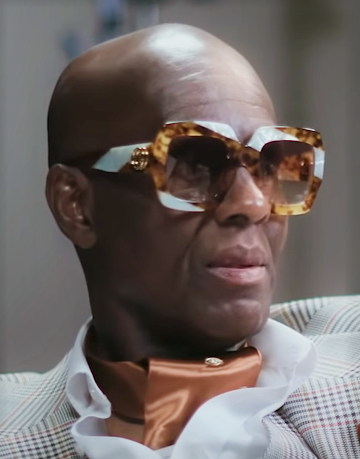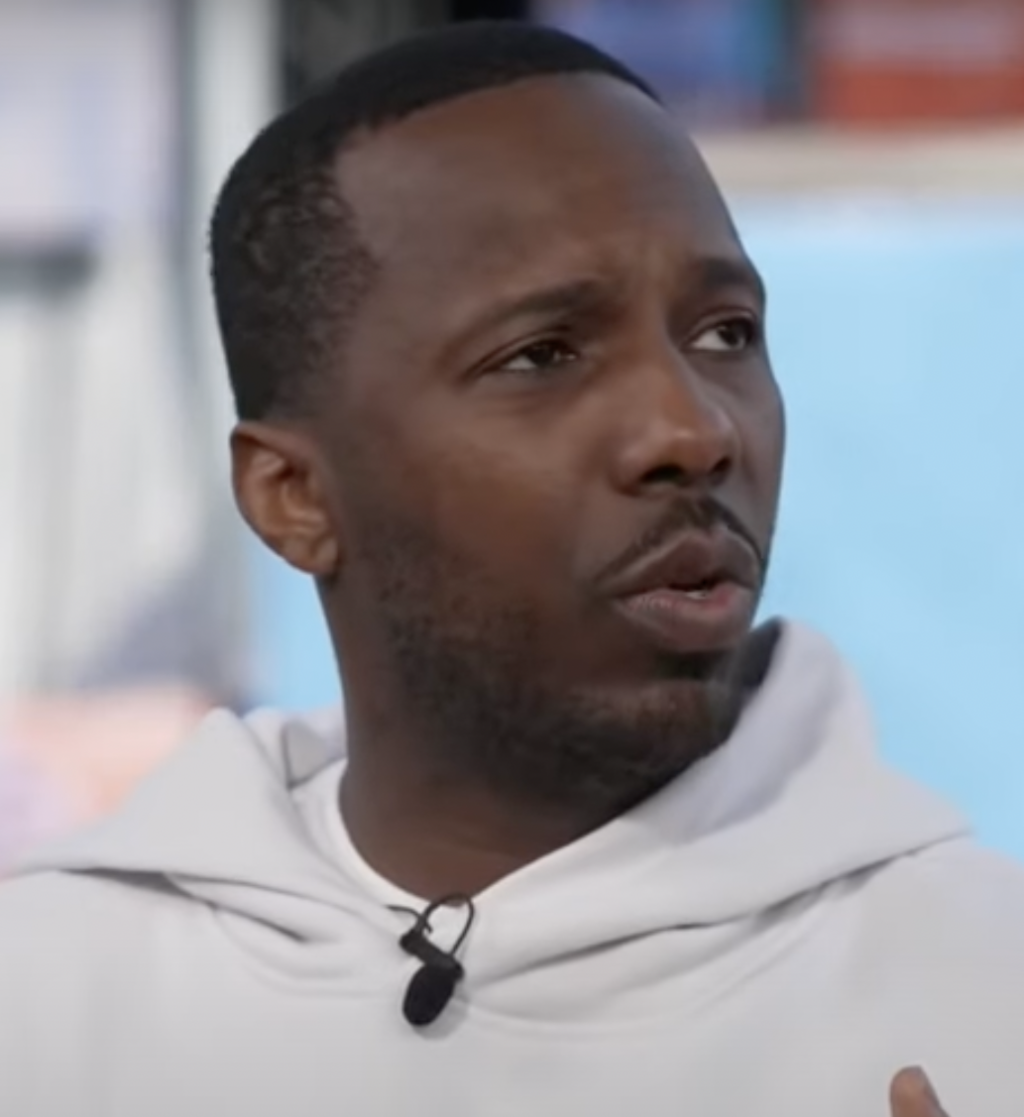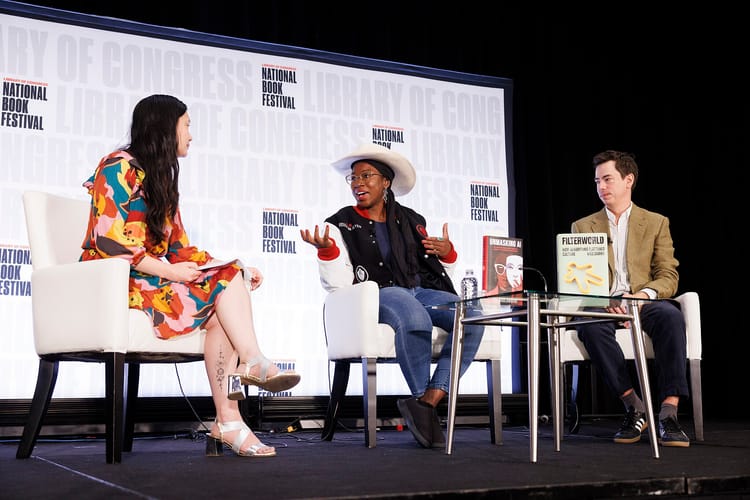Dapper Dan: Made in Harlem

Harlem’s legacy, history, and impact are embodied by one man – Dapper Dan.
He’s the living “King of Harlem.”
Daniel R. Day was born in East Harlem in the summer of 1944, and he’s never known a home besides Harlem.
Dapper Dan: Made in Harlem takes you from his days hustling in the streets to building a fashion legacy on par with another fashion icon, Andre Leon Talley.
His memoir, released in 2019, brought Dapper Dan his overdue flowers.
However, years later, it’s hard to gauge how much his memoir reached those outside the world of fashion and Harlem.
To hell with half-steppin’ and playing it safe.
Dapper Dan committed fully and went all in, whether he was beating drug dealers for their cash in dice games, burning numbers on plastic to run paper games (credit card fraud), or learning the fine art of silk-screen printing techniques to create unique, custom fashion pieces for his loyal clientele.
These three life lessons will translate to street hustlers and corporate grinders.
Lesson #1: Go Further, Faster: Through Apprenticeship and Mentorship
From the start, as a young kid interested in mastering the dice game, Dapper Dan inherently understood the value of apprenticeship and mentorship.
A day spent tagging along behind his older brother Cary, launched his career as a street hustler, when he was introduced to Kenneth “Killa” Williams.
Killa, a seventh-grader who’d already shown enough skill and mastery over a pair of dice to teach him, willing accepted him and one of his friends as members in his crew to teach.
Dapper Dan gained his early knowledge from Killa, then Killa brought him under the wing of Gentlemen Joe (Joe Jackson), a known local legend as a Harlem dice hustler.
He learned the art of using mathematics and percentages to keep the odds in his favor at all times, and the psychological manipulation required to stay two steps ahead.
Fast forward twenty plus years to the point when Dapper Dan makes the decision to open his famous boutique and sell furs as his first product.
In his quest to better understand how to determine what made a high-quality fur, he worked his network and asked around until someone made the connection to Irving Jacobs, a Jewish business owner and fur guru.
Jacobs, a fellow hustler, schooled him from beginning to end on the fur making process, and gave him foundational knowledge to assess and buy high-quality furs to resell.
Dapper Dan’s dedication to doing the homework guided his future decisions.
Now combine that with his intentional search for mentors to shape and grow his knowledge as well as his constant willingness to apprentice under veterans and you see why he succeeded on such a high level.
Experience plus mentorship and apprenticeship beats experience alone.

Lesson #2: When Life Knocks You Down, Reinvention Becomes Survival
By 1992, the lawyers representing top luxury brands like Fendi, Gucci, Louis Vuitton, and MCM, to name a few, launched a series of raids to confiscate merchandise inside his boutique that they deemed knockoff merchandise.
The constant raids shut down Harlem’s finest fashion designer.
After nine years, he’d made his mark. His legacy sealed. The innovations he brought to the fashion industry were written in stone.
Dapper Dan's designs had captured the streets. Through the rise and growing influence of hip-hop artists they were penetrating American culture.
For three months he laid in bed. Then reality hit. The same reality that hits any 48-year-old man. I got kids, a wife, and a shitload of bills.
Many men his age are faced with the challenge of adapting and reinventing themselves after crashing down from the mountaintop. Many fail at it.
Dapper Dan tamed his ego and made his way over to the heart of Harlem – 125th Street. He set up shop beside the other vendors with metal fold-up tables and a bunch of simple iron-on Chanel T-shirts.
For most of the summer of 1992, he sold nothing.
Street hustle, fortitude, and a love for fashion kept him going. He adapted fast.
He heard about the release of a new version of the graphic design and illustration program CorelDRAW 3.0.
He knew nothing about computers. But immediately, he leaned on his oldest son, Danny Jr. to learn, and before long he was making his own original designs.
In no time he was scooping up big rolls of fabric from the Garment District and bringing them back to his brownstone in Harlem which became the production center for his reinvention in fashion.
Dapper Dan shifted away from customize designs made in collaboration with customers, and an army of skilled tailors, to mass-producing specific items he designed in a few different sizes.
These new designs brought his original and innovative style to his core customers – gangsters, drug dealers and hip hop artists in the major cities.
When approached by hip-hop artists for a custom piece, he collaborated in the shadows with them and avoided the spotlight.
Dapper Dan’s name kept ringing in the streets for decades after his boutique closed.
Lesson #3: Swap Buy-in and Deference for Execution and Results
Every black man who has spent numerous years working in Corporate America has done the dance. It takes nothing more than mere perception of aggression from a white colleague to frighten them.
Early in my marketing career at an accounting firm where I worked five years, I was assigned to work with a Senior Tax Manager on a quick turnaround proposal, a white woman.
My role was building the draft response using the resources available and making the messaging compelling. Her role was detailing the scope of work and pricing.
During the final proposal review, we disagreed on the messaging in a couple areas. But I thought we worked it out and came to agreement on an approach.
I was wrong.
The next morning I’m barely settled in my seat before my manager wants to have a quick talk. He explains what he was told by my colleague. A few things weren’t accurate.
I told him just that. I left his office and I went to see her. We talked. I explained what I was told and where I believed some miscommunication must've happened.
She apologized and I believed the matter resolved.
A day later, I’m back in my manager’s office. Now I’m being told politely that I’m going to be attending a “Conflict Resolution Workshop” in a few weeks.
That’s the tightrope that keeps black corporate professionals busy trying to fit in and know all the rules, and play by them daily.
Dapper Dan quotes the words of Malcolm X to breakdown the mentality of street hustlers.
And because I had been a hustler, I knew better than all whites knew, and better than nearly all of the black "leaders" knew, that actually the most dangerous black man in America was the ghetto hustler. Why do I say this? The hustler, out there in the ghetto jungles, has less respect for the white power structures than any other Negro in North America. The ghetto hustler is internally restrained by nothing. He has no religion, no concept of morality, no civic responsibility, no fear – nothing. Malcolm X
Meanwhile living in my world, too much action and making something happen will lead to somebody feeling like you took away their shine, and a performance review that will have you on a performance improvement plan (PIP) overnight.
Still there’s something to be respected in the street hustler ethos, especially related to having a bit less respect for white power structures.
An excessive amount of my time has been spent selling and influencing decision makers to greenlight different marketing ideas and approaches, because I believed it would all go that much better if I attained full buy-in from the beginning.
My time would have been better spent keeping my plans underground while executing and delivering the impactful results that turn heads, and get the attention of the higher ups who want results.
Of course, that’s the second guessing that keeps you from having major impact. Only you don’t realize how much you're second guessing your instincts when your smack dab in the middle of it.
My brothers in those corporate circles, play the game with the weapons you have including the mentality of street hustlers.
Worth the Read
Dapper Dan brings you his story without sugar coating anything. He's authentic and doesn't attempt to hide his faults and flaws. It's all there.
You will connect to his constant desire to find his higher spiritual self while slipping from time-to-time into the vices that find us all when life happens.
Those who read this will go away with more life lessons than I covered. Go get it!
I am part of the affiliate program with Bookshop.org. If you decide this book is a must read for you, the link below will allow you to purchase Dapper Dan: Made In Harlem. I may earn a commission at no extra cost to you.








Member discussion